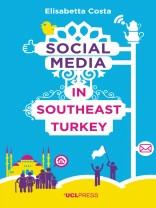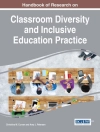This book presents an ethnographic study of social media in Mardin, a medium-sized town located in the Kurdish region of Turkey. The town is inhabited mainly by Sunni Muslim Arabs and Kurds, and has been transformed in recent years by urbanisation, neoliberalism and political events.
Elisabetta Costa uses her 15 months of ethnographic research to explain why public-facing social media is more conservative than offline life. Yet, at the same time, social media has opened up unprecedented possibilities for private communications between genders and in relationships among young people – Costa reveals new worlds of intimacy, love and romance. She also discovers that, when viewed from the perspective of people’s everyday lives, political participation on social media looks very different to how it is portrayed in studies of political postings separated from their original complex, and highly socialised, context.
Praise for Social Media in Southeast Turkey
‘This ethnographic study presents an opportunity to listen the stories of people in Mardin, for instance, we get chance to read about the state violence from a victim’s perspective; we listen a woman telling about her husband who took their children and left her for another woman he met online. While reading the book sometimes it feels like watching a documentary and it should read by not just academics but also by the ones who would like to touch the other’s lives.’
Kadın/Woman 2000, Journal for Women’s Studies
‘This is a highly recommended book that will broaden readers’ horizons on social media and its uses and consequences in a distinct cultural context. A stimulating and vivid read, it will invite both social media scholars and anthropologists to see the relations between social media and social life in a new light. Because of the particular nature of this research project, readers who intend to explore these issues further from a theoretical point of view, are recommended to consult the other books of the series.’
Social Media & Society
‘Costa captures and sustains the attention of the reader when describing events, characters, and places. Her monograph is revealing and immensely contributes to anthropological understanding that media is appropriated differently in different settings’
New Media & Society
‘the book’s contribution to social media research is immensely important since it provides a nuanced approach to digital technologies by tracing their particular use in a local context… one of the most comprehensive studies on social media anthropology in Turkey’
Reflektif Journal of Social Sciences
表中的内容
Introduction: Welcome to Mardin
The social media landscape: Individuals and groups in the local media ecology
Visual posting: Showing off and shifting boundaries between private and public
Relationships: Kinship, family and friends
Hidden romance and love
The wider world: Politics, the visible and the invisible
Conclusion: What kind of social change?
关于作者
Elisabetta Costa is Post-doctoral Research Fellow at the British Institute at Ankara (BIAA). She is an anthropologist specialising in the study of digital media, social media, journalism, politics, and gender in Turkey and the Middle East.












